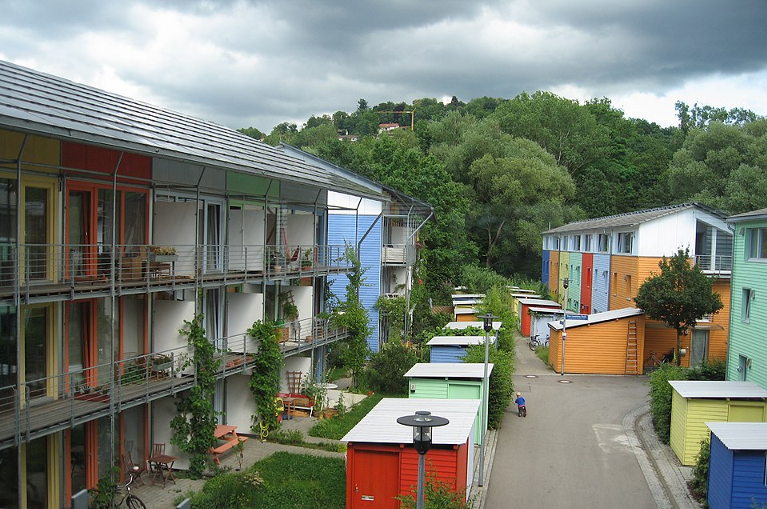Part of the GTI forum on Can Human Solidarity Globalize?
Richard Falk’s engaging essay invites us to identify various “foreclosures of the imagination” that are blocking the emergence of pathways to greater global solidarity in the future. Any realistic thoughts about the future, though, must surely be set within the context of the physical conditions humankind will face in the Era of Disasters, which we have already entered. Since the beginning of the COVID-19 pandemic, it is now easier for people to imagine a regional or planetary situation where forces of nature take over and humans are not in control. Still, the human tendency to ignore an almost unthinkable threat in the hope that it will go away or strike someone else is a very problematic foreclosure of imagination in our situation. Regardless, in the coming decades, every department and agency in every government in nearly every country is going to be focused on, in addition to its usual duties, the ramifications of frequent, massively destructive catastrophes causing cumulative, often irreparable damage to the economy, social structure, institutions, communities, and mental health.
We survive or die where we live, so a place-based, community focus is ascendant as the planetary crises worsen. Perhaps it is time to dust off the decades-old, but marginalized, “alternative” vision of the global family of humankind as being a nested community of communities of communities. In this model, the United Nations would be restructured, which could be reflected in a redesign of the seating in the General Assembly chamber. Instead of alphabetical seating, why not have major groupings according to the continents? Within those groups, countries would be seated together according to regions. When a speaker would address the Assembly from any of the continental or regional groups, the context of what the speaker’s country and its neighbors are dealing with in terms of climate or viral disasters, attempted recovery, and waves of climate refugees would be commonly known. That is, Enlightenment abstractions would have to make room for attention to the physical realities and vulnerabilities of the Earth Community (a term coined by the late cultural historian Thomas Berry to include all species). Continuing as 193 Lone Cowboy states (the Enlightenment model of Thoroughly Autonomous Individuals) as the membership of the UN will become self-defeating. Global solidarity needs to be woven with webs of place-based connection, from the planetary level to continents and on down.
Many of the proven benefits of Community Emergency Preparedness might well be relevant as adaptations in this type of interlinked global, continental, national, and regional solidarity. Among these elements are multilayered, thoroughly inclusive networks of communication (including face-to-face message chains, in case electronic systems are down); the creation of local and regional self-reliance via developing food webs; regional power grids; community-based economies (“Buy Local,” land-trusts, cooperatives, exporting only surpluses); ecologizing the economy; and a healthcare system that involves the community. In addition to all the international movements and NGOs already in place, additional horizontal communication could be achieved by resuscitating the Sister Cities program (from the peace movement of the early 1980s). Cities have already been linked with two or three cities of similar size around the world, so online communication could now be revved up within every cluster of Sister Cities to share information and ask questions about what’s working well regarding climate action, implementing disaster preparedness and recovery, absorbing large numbers of climate refugees, and other pressing matters.
As for foreclosures of the imagination, Falk mentioned “the Enlightenment paradigm.” While there are certainly Enlightenment values worth preserving (and evolving), one of the most problematic aspects of this frame of reference is its adoption from the Scientific Revolution of the mechanistic worldview: the belief that society is essentially atomized, consisting of isolated human organisms that have no inherent interrelatedness with one another and that function internally in biomechanistic ways. This premise has skewed modern science and medicine, education, social structures, and personal life in modernity. In the past fifteen years, however, numerous discoveries in human biology have revealed that dynamic interrelatedness is central to the ways in which humans are actually structured and actually function. This relational awakening in physiology constitutes a grand correction to the damaging mechanistic assumptions. The emergence of post-mechanistic, relational thinking is extremely relevant to how we now design community healthcare, education, emergency services, and efforts to strengthen the social fabric of communities at every level. Rather than slogging along into the Era of Disasters with incorrect mechanistic assumptions underlying our policies and practices in modernized cultures worldwide, we can, instead, apply the new relational discoveries.1
Incorporating them simply makes everything work better. They are so efficacious and cost-effective that many have already been applied in most hospitals, for example, in the United States.
A second frame of reference that weighs heavily on us is neoliberalism, which effectively blocks efforts toward greater global solidarity and so much else. After forty years, it is entrenched in power structures worldwide, undergirded by the ideological belief that government is inherently detrimental because it curtails [economic] freedom. Since its proponents have repeatedly blown a large hole in the tax revenue stream via large tax cuts for corporations and the wealthy, many countries (certainly including the United States) now have depleted public coffers just when so much needs to be done. Scores of millions of people born after 1980 in the United States, for instance, think it is normal that corporate taxation now amounts to only 6.6% of the annual federal revenue (in 2019); that corporations and almost the entire business sector largely stopped paying raises to most workers after 1980; that those in the highest tax brackets pay so little; and that public-service agencies, especially regulatory, are barely functional after drastic and repeated cuts to their budgets (the neoliberal effort to “Starve the Beast”).
How can neoliberalism be deflated without a massive public education effort to explain to the American public how we got into this hole and why we need higher, corrective taxes now—as well as demanding that the corporate sector make restitution for four decades of withheld/stolen raises? The Democrats will not do this because they are complicit, their leadership having embraced Neoliberal Lite after 1992 to the present. I agree with other responses that a coalescence of movements and organizations will be necessary to defeat and replace neoliberalism (though such coalitions are very difficult to achieve), but a public education effort explaining the devastation caused by neoliberalism is crucial before, or along with, any demands for changing policy. Absent a grassroots understanding of what has happened, grievances will continue to be manipulated into violent polarization, shattering hopes of solidarity at any level.
1. Charlene Spretnak, Relational Reality: New Discoveries of Interrelatedness That Are Transforming the Modern World (Topsham, Maine: Green Horizons Books, 2011).
Teaser photo credit: Vauban, Freiburg a sustainable model district By Claire7373Andrewglaser – Own work, CC BY-SA 3.0, https://commons.wikimedia.org/w/index.php?curid=2637411





